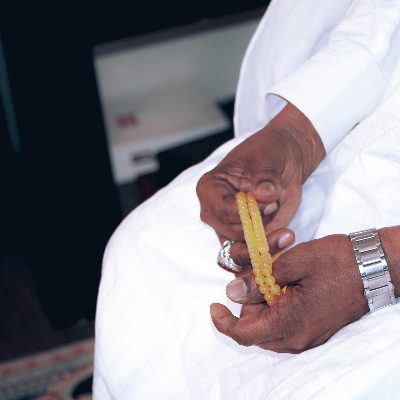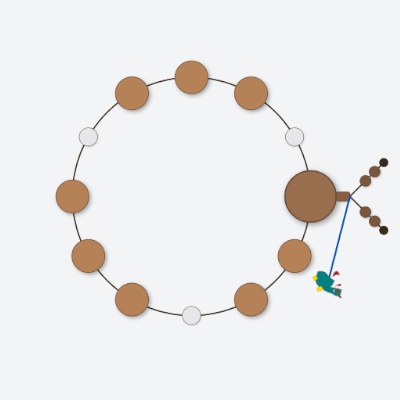Menu
-
-
F.A.Q
- How to identify genuine agarwood chip, natural or cultivated
- How to identify oil injection / absorption fake agarwood beads
- How to know if there are more than one oil in your oil
- How to make your wood bracelet or mala darker
- How to tell if an Agarwood bead sinks WITHOUT sinking it under water?
- How does back flow incense work and how do you burn it?
- Where to start if you don't know what agarwood is ?
- Why are you losing money if you buy seeds and plants?
- Which agarwood incense should I choose?
- Frequently Asked Questions
- Agarwood Related Articles
- Shipping
-
SHOP - Agarwood
-
SHOP - Other Fragrant Wood
-
SHOP - Incense Holder and Burner
-
- FREE Oud Oil guide
- Testimonials
- "Why did you buy this?"
- Contact us
- About Us
- +61430284329
- Login
-
English

The unusual plant that farmers keep it malformed...
January 23, 2020 7 min read
Dear reader
Today I am going to tell you.
a story about a tree that the farmers NEVER want it healthy and the reason they want it this way
Two years ago Feb 2018, when I visited our plantation in Dong Xoai, Binh Phuoc, Vietnam with my brother Kiet, and a young man, named Jigar from Sydney to learn about this tree.
Jigar told me he was interested in Oud in perfumery, he made perfume occasionally as a hobby but did not know how the oil was made. He purchased some oud online, but he was not very happy because the agarwood seller did not tell him much about this process of making agarwood (oud) oil. He decided to learn more.
He found us online, and coincidently, I was going back to Vietnam to have a Tet holiday with my family, so we met him in Tran Hung Dao st District 5, HCM city.
We left HCM city at 4.30 am, arrived at the plantation around 10.30 after 6 hours of driving. After some greetings with the local farmers (also our colleagues), my brother Kiet asked me to take Jigar around because he needed to fulfil several hundred kgs of agarwood chips for a Japanese incense company. So I would be Jigar's guide this time.

I showed him some banana trees, water spinach, rubber trees, mango trees, and stopped In front of a tree per below:

Jigar asked
- "Why are there several holes in this tree?"
Before I could answer, he heard a drilling sound which was just two blocks away, so I took him there, and this was what he saw.

Confused, Jigar asked again.
- "Trent, what is he doing?" pointing our technician, he continued.
- "Are you making an anchor for a hammock?"

I told him that we liked these trees punctured, wounded, injured, sick. He was totally stunned, confused and concerned, his jaw dropped. I understand the reasons.
If you have a garden with some plants, you would water it daily, clip off dead leaves, take good care of it.
You will also do pest control on your tree. In short, you will do what best for your plant to grow.
Personally, I have a Kaffir lime tree in my garden. I watered it twice a day, fertilise it weekly, and frequently remove "not so green" leaves.
So if this were the first time I saw this, I would be shocked too. So I explained it to Jigar:
The extraordinary plant that farmers preferred it malformed and unhealthy. They even intentionally wound it, or also sicken it for...
turning the ordinary scentless white wood to the extraordinary aromatic Agarwood
Let me started again.
What is agarwood?
It works like our immune system, to keep our body healthy and to fight disease. So when this tree, known as Aquilaria, is under attack, its immune system kicks in to protect the tree and to heal it. Scientists called it "plant phytoalexin", The Bible mentioned it as "Aloes", the Buddhist Scripture referred to it as the "Scent of Nirvana", The Chinese called in Cheng Xiang (meaning Sinking Incense), The Arabian called it Oud. In English, we called it Agarwood.
In the wild jungle, only 1 in 100 Aquilaria tree contains agarwood, and because it is so rare, wild agarwood is nearly depleted. The supply of it is very unstable.
To prevent it from extinction, the human starts growing them, and we called it cultivated agarwood.
Now you have learnt the definition of agarwood. You are ready to move on to the cultivation side of it.
How do we cultivate agarwood
Jigar asked me this question, and I reminded him what he just saw 20 minutes ago.
- "The holes drilling is just one of the methods, do you want to see something interesting I asked?"
- "Sure," said Jigar
So I asked him to follow me inside our guest house and show him some of way of cultivating agarwood.
First of all, before applying any of the below methods of creating agarwood, the trees need to be ten years of age minimum. Reasons: just like children and adult, a child immune system is generally weaker than an adult, so if you apply too much stress on young, and immature trees, they will die. The trees are not ready.

Source: our family Evergreen Forest Plantation in Vietnam
Before making a tree sick, physically, it needs to be ready to endure the hardship, farmers must be willing to wait. Like any soldiers, they need to train and prepare for battle. If you are sending these troops too early, you will lose them all. Same concepts with these trees, if these trees are too young, they will be a cripple when they are wounded.
Jigar noded, I then show him the first method of wounding techniques.
"The boring insect" way
The below image was taken by an associate friend who attended one of the agarwood tradeshows.


TripuraInfo has more information about this insect.
So in short, this method relies on these worms to ATTACK the Aquilaria tree when they bore the "tunnel" to live and eat the wood, the Aquilaria tree's defence system create agarwood around the tunnel to protect and heal its wound.
Source:cites.org
- "It is disgusting, and I felt itchy by just seeing it," Jigar said
I replied
- "Believe it or not, this is one of the safest method and the costliest method to create agarwood. It is slow, take 3 to 5 years on a mature tree. You can be sure there is no pesticide use because it would kill the worms."
Usually, when we see these worms on our trees, we will remove it. But it this case, we not only do NOT remove them but also ENCOURAGE them to STAY, to continue attacking the trees. Isn't it fascinating?
"Jigar, I will show you one more thing", I pulled a bag of wild agarwood next to me and ...

picked one of chip up. "Jigar, look at what I found"

"That was a dead boring insect inside this agarwood piece in the forest"
"So it was real after all because I was doubting before?"
"Jigar, you see the worm in my phone, you may think I made this up, but this is the real piece of wild agarwood chip in front of you, do you want me to take a closer look at the insect because I can get it out for you to feel it?"
"No thanks, Trent. I am cool, so what is next?"
" Next thing will be interesting, but before moving on, can I ask you a question?"
"Sure Trent, go ahead?"
"So Jigar, what do you call someone who is farming?"

- "Well you guys are farming trees, so you are farmers"
- "So anyone who is planting trees is a farmer"
- "Yes, of course, I can also call them planter or grower"
- "Ok Jigar, I will introduce you a "non-human" farmers who cultivated their crops before human."
Non-human farmer: "A farm inside a farm"
So Jigar, did you know that ants are great farmers? Some of the ant species feed aphids in exchange for their honeydew. So one insect is "farming" another insect. The aphids suck "blood" from the tree and poop sweet "honeydew" for the ants to consume.

Source: Pixal Bay JerzyGorecki
But not all ants like honeydew. There is another breed of ants love to eat mushrooms. So, to make mushroom available in large scale, they start farming their own fungi

These ants have beeing growing fungi for food for around 60 million years ago (Handwerk 2017). These fungi trigger the Aquilaria trees defence system, as a result, agarwood was also formed around the fungi areas to fight against the fungi. Why? Because these fungi attack the trees.
There are hundreds of thousands of ants in a tree which they need a lot of food. So to accommodate that, ants begin to grow fungi in an "industrial scale" which mean many parts of the trees are infected by these fungi. The host tree, Aquilaria, signal its cell to form agarwood to fight against this infestation. As a result of this ongoing war between the tree and the fungi, agarwood is formed where the fungi are grown. So in short
- Ants are farming fungi inside Aquilaria trees.
- We are farming the ants to farm the fungi, we are also farming more than 353,323 Aquilaria trees on our land
- The fungi spread and attack the tree. The tree responds to the attack by forming agarwood to defence and heal the wound
Hence, we called this method "a farm inside a farm".
"Wowwww" Jigar's eyes are wide opened so I continue
"The nailing or holes drilling way"
This method is the first traditional method to create agarwood.
Drilling


Nailing

Wounding these trees physically will trigger agarwood formation around its wound

Not only this is the oldest method of agarwood creation, but it is also the slowest one, so scientists step in to speed up the process.
They develop an inoculated solution to reduce the time of harvesting.
"The inoculated way with the chemical."
They still drill holes.

But take one extra step to inject "intravenous fluids."
Jigar said "it looks like a sick person hospitalised and get this stuff on his wrist."
"Is it safe to use agarwood created this way?"
"I don't know because no one would reveal what was the content of these solutions, so you may argue it was a grey area."
"Ok, Jigar, would you like to see how the agarwood is formed inside a tree?"
" Yes I would like to"
"So Jigar, you have seen several methods of agarwood creation, come with me I will show you how it looks in a tree"
I took Jigar in front of a different Aquilaria tree

What if you take the white wood out, how does it look like?
Side view
- First, let's peel off some skin
-
- If you take out the bark and non-infected part, you will end up something like the side view below

Interesting anatomy: the white parts outside are healthy non-infected parts. The dark brown, black colour is the agarwood. You see, agarwood is usually formed around the "physical injury" area of the tree.
"OK, Trent, I see how it works and leant something new today. I now can explain what oud is, and how it was created to my friends and family members".
He went on:
"so I see the whole pictures now, and it reminds me of your perfume. And I get it now, I understand where its name come from, it was all about the fighting spirit of oud, the pain it endures during the process to create agarwood: Glory of the Pain"
" You got it. So there we have four main types of infecting the Aquilaira trees."
"Ok, Trent, thank you for your time today, can I get some agarwood chips from you"
.....
Jigar got some Evergreen Superior oil and some of our cultivated chips as a souvenir for his friends and families. He left HCM city the next day.
If you are curious about what he took with him, here is the information
Leave a comment
Comments will be approved before showing up.
Also in News

What is Tasbih? The Deep Meaning of Subhan Allah and the Role of Prayer Beads
November 09, 2025 4 min read








